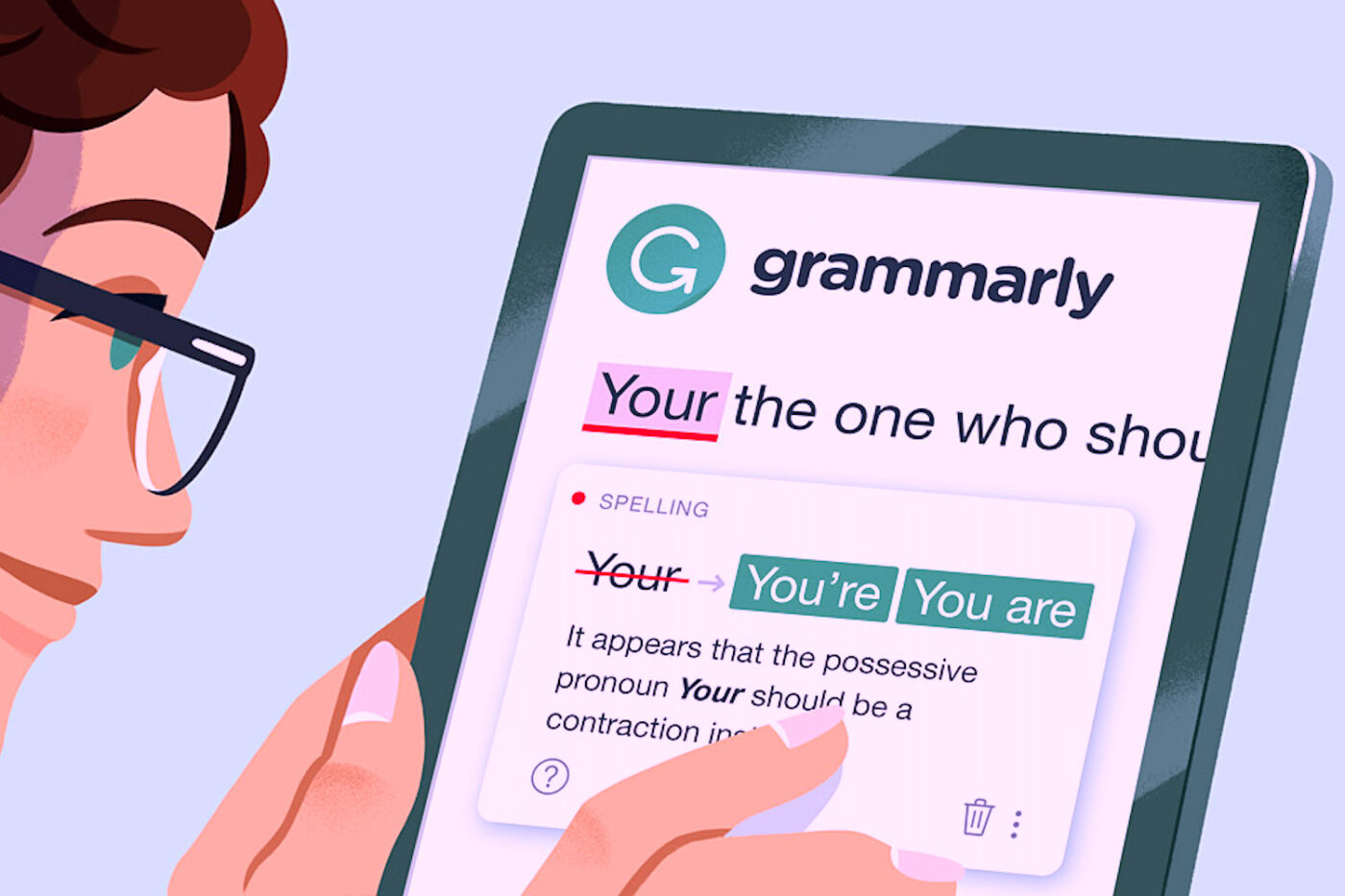Grammarly is a piece of writing assistance software used by millions, but is it enhancing or inhibiting our writing abilities and wider creative abilities?
It’s undeniable that artificial intelligence has exploded into the popular consciousness this year like never before — just take the meteoric rise of ChatGPT, the mind-reading Japanese AI and AI’s first tragic victim as prime examples. However, AI software has been fairly commonplace for a number of years now, even if it didn’t explicitly market itself as ‘AI-driven’ for quite some time. Grammarly is one such example…
According to its own data, Grammarly is used by over 30 million people and, for the uninitiated, is the world’s most popular digital spelling, grammar, and style assistant in the world. Used by everyone from full-time writers to people who just want to dodge the occasional embarrassing email typo, it’s become a pervasive presence for anyone who uses a computer on the daily.
However, beneath their apparent benefits lies a question worth exploring: are we becoming too reliant on these tools, to the detriment of our own writing skills and creativity?
WATCH: We went to Australia’s first AI-powered restaurant.
How I Use Grammarly
For the sake of full disclosure, I want to say up front that I’m one of many full-time writers who uses Grammarly every single day and, frankly, it’s a lifesaver. The amount of typos or lazy grammar errors that are saved from being published in my work — and in much less time than it would take to re-read the work ad nauseam or share with an external editor — is almost mind-boggling.
However, as well as catching your errors, Grammarly also offers to streamline your style and even spruce up your vocabulary with unsolicited synonym suggestions. This, for me, is where the waters become a little murkier. Don’t misunderstand me: I’m always looking for means of enhancing my writing and expanding my vocabulary, but does software like Grammarly offer the most meaningful or effective way to do this?
Content Enhancement vs. Content Writing
I don’t want to be too quick to criticise Grammarly without comparing it to the more pressing threat for writers everywhere: AI-powered content writing software, like ChatGPT. Whereas Grammarly, at least for now, is specifically designed to enhance human-written content, sites like ChatGPT attempt to circumvent the human creative process altogether.
While an AI-powered writing buddy with halfway-decent style, format, and SPaG skills appeals to many, this kind of AI currently has enormous limitations. First and foremost is the fact that this software can’t generate anything truly original, given its training on massive pre-existing data sets. Specifically, ChatGPT’s main function is to best guess what word is most likely to appear in any given context based on historical occurrences, rather than think creatively.
Katy Ilonka Gero summarises this well in an article for Wired:
“[ChatGPT’s main ability] is literally the task most computer systems are trained to do: predict what comes next.”
Katy Ilonka Gero
However, something else that Gero says resonates both powerfully and specifically with these ‘AI assistant’ tools like Grammarly…
“The computer’s ideas would represent a low bar that the writer must improve on…”
Katy Ilonka Gero
Stunting Creativity
In a separate article for Euronews, Luke Hurst poses the question that has been on every writer’s lips since ChatGPT hit the scene:
“If a machine can produce text that is indistinguishable from that of a human writer, why would anyone need to hire a real person to do the job?”
Luke Hurst
If a machine could produce indistinguishable text, then the point is a very good one. At present though, so far as I’m concerned, it simply cannot. I’ve tried at length to try and get AI to create the kind of content I’m paid to produce and, though its spelling and grammar are absolutely flawless — undeniably better than my own — it currently lacks the critical capacity to create an original and truly interesting piece of work; it simply reproduces pre-existing content with a slightly different gloss.

And herein lies the rub that underlies concerns around writing enhancement tools as well as generative AI: they become crutches that discourage writers from thinking critically about their work. With instant corrections and suggestions at their fingertips, writers become less inclined to wrestle with language, explore innovative ideas, or take creative risks. Over time, this overreliance on AI could homogenize writing styles and stifle the development of unique voices.
This has a particularly profound impact on the education system In educational settings: students may turn to tools such as Grammarly to quickly polish up their work without understanding the underlying principles of good writing. This won’t only hinder their growth as writers but as critical thinkers and, even if you adopt the argument that writing will become a largely redundant task for humans in the coming decades, critical thought should certainly not.
Balance Is Key
As with so many things in life, it’s all about moderation and balance. The power that Grammarly has given me as a writer to improve the quality of my work in record time is genuinely life-changing, and I know swathes of other writers feel the same.
However, I know that Grammarly works best when I — someone who has spent years cutting their teeth in the ways that language writing — deploys it as a finishing touch on a piece of work created using my own critical faculties.
The issue may arise when these tools become so widespread and so powerful that they encourage disinterest and resulting laziness on the part of emerging writers. Whether or when that happens remains to be seen but for now, I need to scroll to the top of this article and start a much-needed spellcheck… and you know what software I’ll be using.
